'Phubbing' may be hurting your relationship - here's what it is and how to prevent it
Phubbing might sound like a social media invention but it's actually a common issue in modern relationships, here's what you need to know
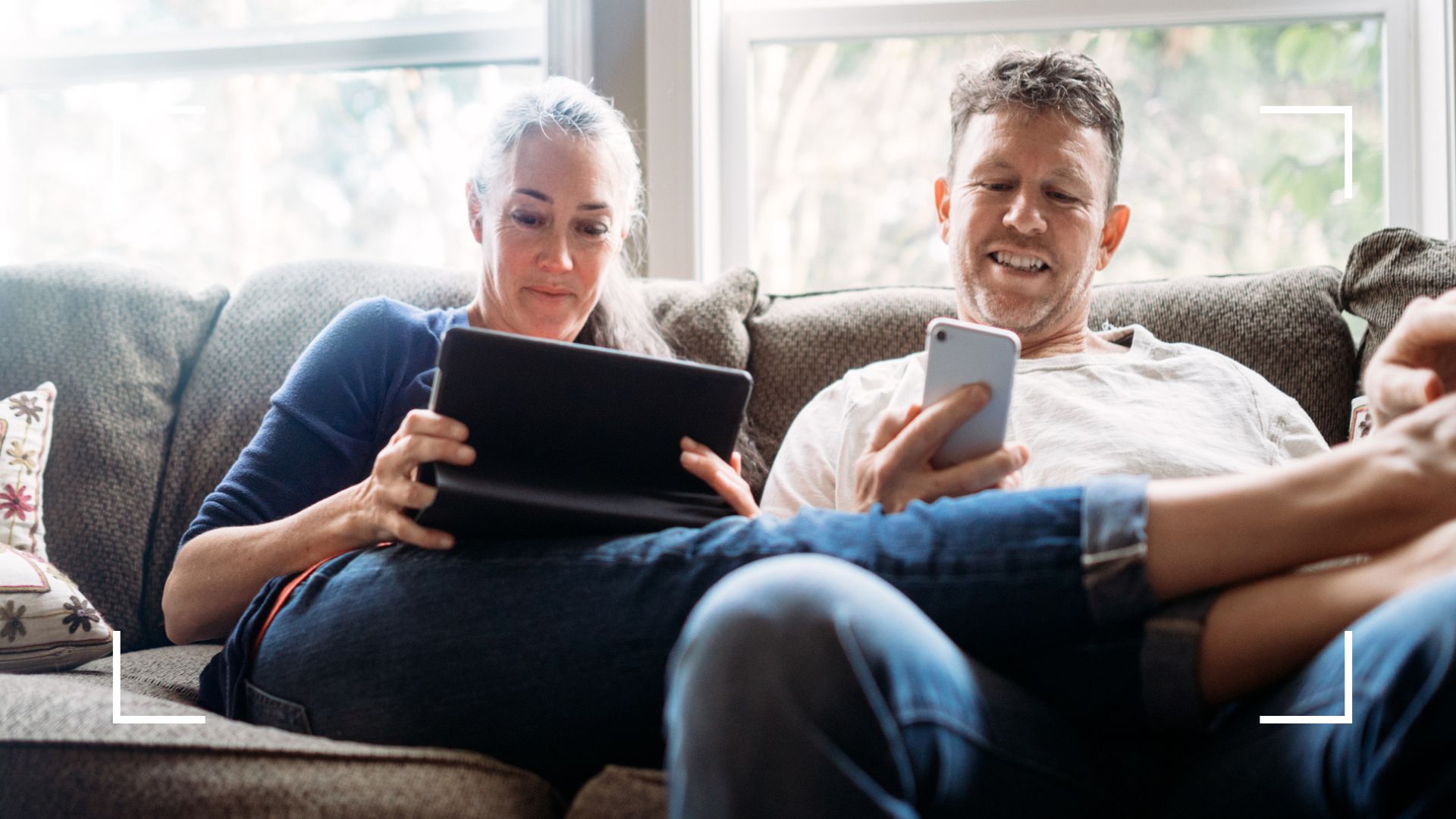
Have you ever heard of 'phubbing'? This common behaviour may sound like something made up by the internet - and you wouldn't be too wrong - but experts have warned it can also be a serious problem in longer-term relationships.
Our phones are used for everything such as messaging, shopping, working and so much more. I know that my phone is rarely far from my side, apart from when I’m asleep. I’m also aware that this reliance is unhealthy and I know that it affects my relationship with my husband and children, and it seems I'm not alone.
Phubbing is the habit of ignoring those around you in favour of your phone or other digital device, and it's one of the most common relationship issues of the modern age. I think when life can feel overwhelming with work, childcare or other responsibilities, it can be easy to just turn to your phone and start doom-scrolling to switch off. I know that this is something I do when I’m on the sofa watching TV in the evening or in bed at night, but these moments would be a great time to catch up with my husband. So why do I find myself browsing shops or wasting time on social media? Here, woman&home speaks to addiction, relationship, and wellbeing experts to find out why phubbing is so prevalent in relationships and how we can prevent it.
What is phubbing?
Phubbing is a portmanteau made from the words ‘phone’ and ‘snubbing’ and it refers to the act of spending more time on your phone - texting, calling, messaging or scrolling through social media - than interacting with your partner.
According to data from Pew Research Center, 81% of people aged between 30 and 49 use social media with 73% of people aged 50 to 64 saying the same. So, it's really not a surprise that phubbing is a common issue in relationships when so many of us are rarely far from our mobile phones.
In fact, more of us than ever before are using our phones for validation, connection, and escape, says addiction specialist Brook McKenzie who works with Burning Tree Programs, so you're not alone if you're worried about your phone use or your partner's. He believes it's become more of an issue in recent years as well since we're all becoming accustomed to the "dopamine-driven feedback loops, constant connectivity desires, and the allure of instant gratification" on devices that have been specifically designed to capture and retain our attention. The constant invention and reinvention of social media apps like Instagram, TikTok, and X (formerly Twitter), hasn't helped with this either.

Brook McKenzie is a licensed chemical dependency counsellor and the chief operating officer for Burning Tree Programs, an addiction and mental health treatment centre. He has been featured on multiple platforms that address addiction and mental health in America, including several episodes of Dr Phil.
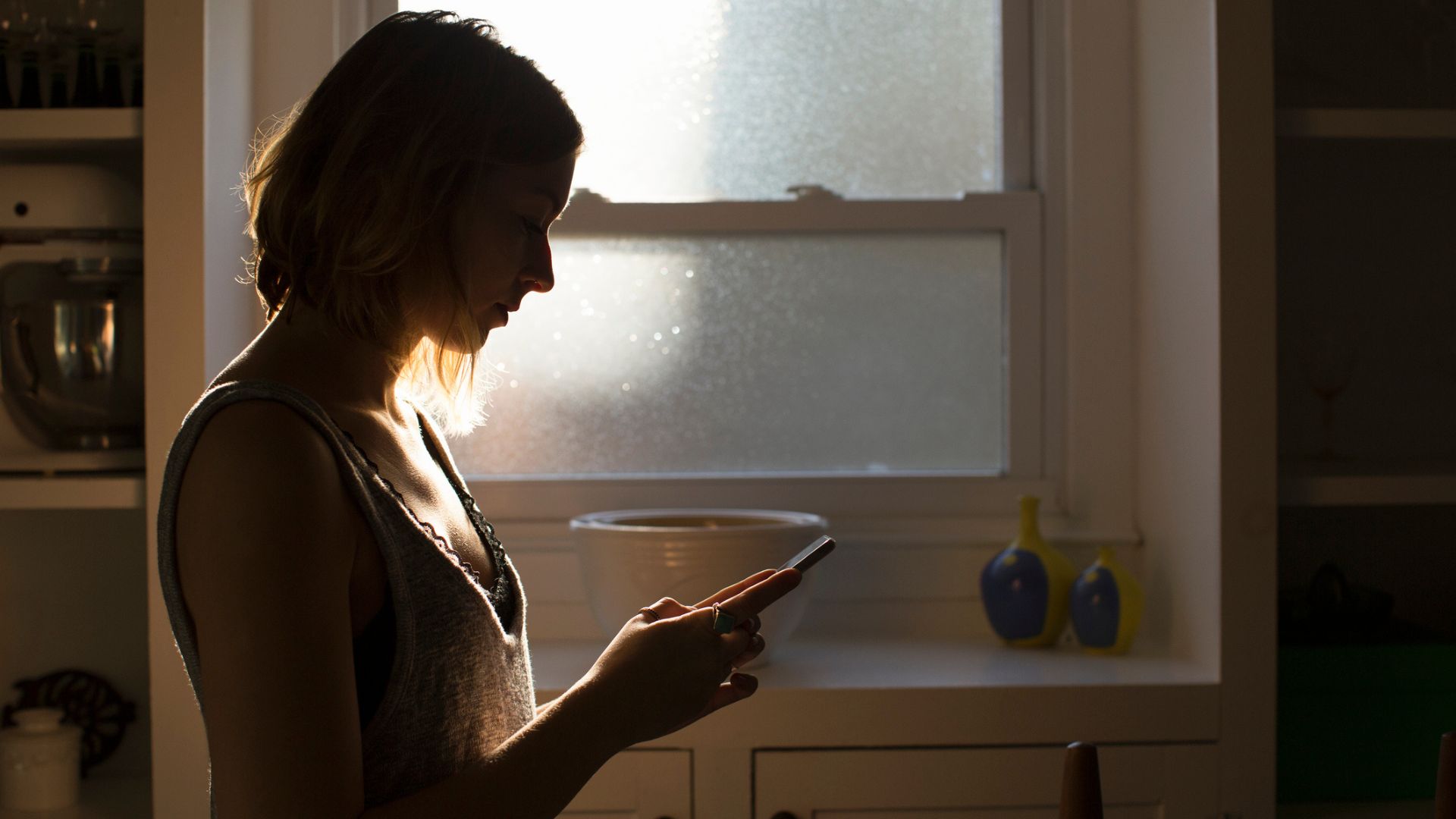
Phubbing can happen at any time, to anyone, and it's not just something that happens in relationships. Have you ever been out to dinner with a friend who seems to be spending more time on their phone texting someone else, making phone calls, or updating their social media? That's also phubbing.
Sign up for the woman&home newsletter
Sign up to our free daily email for the latest royal and entertainment news, interesting opinion, expert advice on styling and beauty trends, and no-nonsense guides to the health and wellness questions you want answered.
It's at home with a partner that phubbing tends to happen the most though. If you've been together and lived together for years, you may not feel the same sense of social obligation to engage in conversation. However, for all the comfort this offers, it's not great for a healthy, long-term relationship. If you’re constantly choosing to look at your phone rather than engage with your partner then problems will arise.
Jessica Alderson, an online dating expert and co-founder of So Synced, says, "In situations where it occurs repeatedly, phubbing can cause feelings of neglect and disconnection in a relationship. If someone is continuously prioritizing their phone over conversations with their partner, you can see why the person who is being phubbed might feel insignificant and unimportant."

Jessica Alderson is the co-founder and relationship expert at dating app, So Synced, a platform that aims to match compatible personality types. She founded the company with her sister and the pair are on a mission to make dating more fun, meaningful, and successful.
There's even research to prove it. Dr Martha Lee, a relationship counsellor and clinical sexologist, highlights a study in connection with Artvin Coruh University which found that higher levels of smartphone addiction were associated with lower relationship satisfaction and higher levels of depression and anxiety. If you are constantly choosing to scroll through Instagram or message friends then it’s not hard to understand why they may start to think that you find them boring or don’t value their company. It's hardly the recipe for being happy in a relationship and if the habit continues unspoken about, it could even become one of the signs of a toxic relationship.
While I don’t think I’m addicted to my phone, I do acknowledge that I’m very attached to it. If my husband and I are having a movie night, I often find that even if I’m really engaged in what we’re watching, I’ll still habitually reach out to check my phone. I may only be planning to check my messages but it often leads to me wasting time by inanely scrolling through an app that I hadn’t planned to be on.

Dr Martha Lee is a relationship counsellor and clinical sexologist, working with Eros Coaching. She has a doctorate in human sexuality, a master's degree in counselling and two other degrees. In practice for 14 years, Dr Lee is also the appointed resident sexologist of the Singapore Cancer Society, as well as OfNoah and OfZoey. Her books include 2013's Love, Sex and Everything In-Between.
Is phubbing rude?
Yes, phubbing is rude - but you probably know that already. If you're regularly choosing to communicate with friends and even strangers online instead of having face-to-face interactions with those around you, you're snubbing real-life interactions in favour of digital gratification. Not only will this have a gradual impact on those around you, including your partner if you're in a relationship, but could speak to a wider problem with phone reliance.
Relationship and women's wellbeing expert Deborah Kagan says, "Beyond being a simple breach of etiquette, phubbing sends a subtle, and sometimes overt, message: ‘The virtual world on my screen is more important than our real-world interaction’.”
Alderson agrees. "Attention is a valuable resource in any relationship. When someone consistently chooses their phone over spending time with their partner, it sends a message that someone or something else is more important to them.” In more serious cases of phubbing, if one of you doesn’t feel appreciated or listened to, you might start to confide in a third party or seek reassurance and support from elsewhere. This will only increase the distance between the two of you and in more severe cases, it could be one of the biggest red flags for the end of the relationship as it could lead to the eventual breakdown of the partnership.
Dr Lee highlights that phubbing isn’t solely a problem within romantic relationships though. It can also be an issue in friendships, within family dynamics, and in professional interactions.

Deborah Kagan is a women's sexuality, relationship, and wellbeing expert, a Mojo Recovery specialist and the author of Undressed. She supports entrepreneurs, small business owners, consultants, creatives and the career-oriented to tap into their innate power and connect with their mojo – a source of true self-esteem. Her methods combine over 25 years of experience in personal development, metaphysical studies, and embodiment practices. She is also the host of The Real Undressed Podcast.
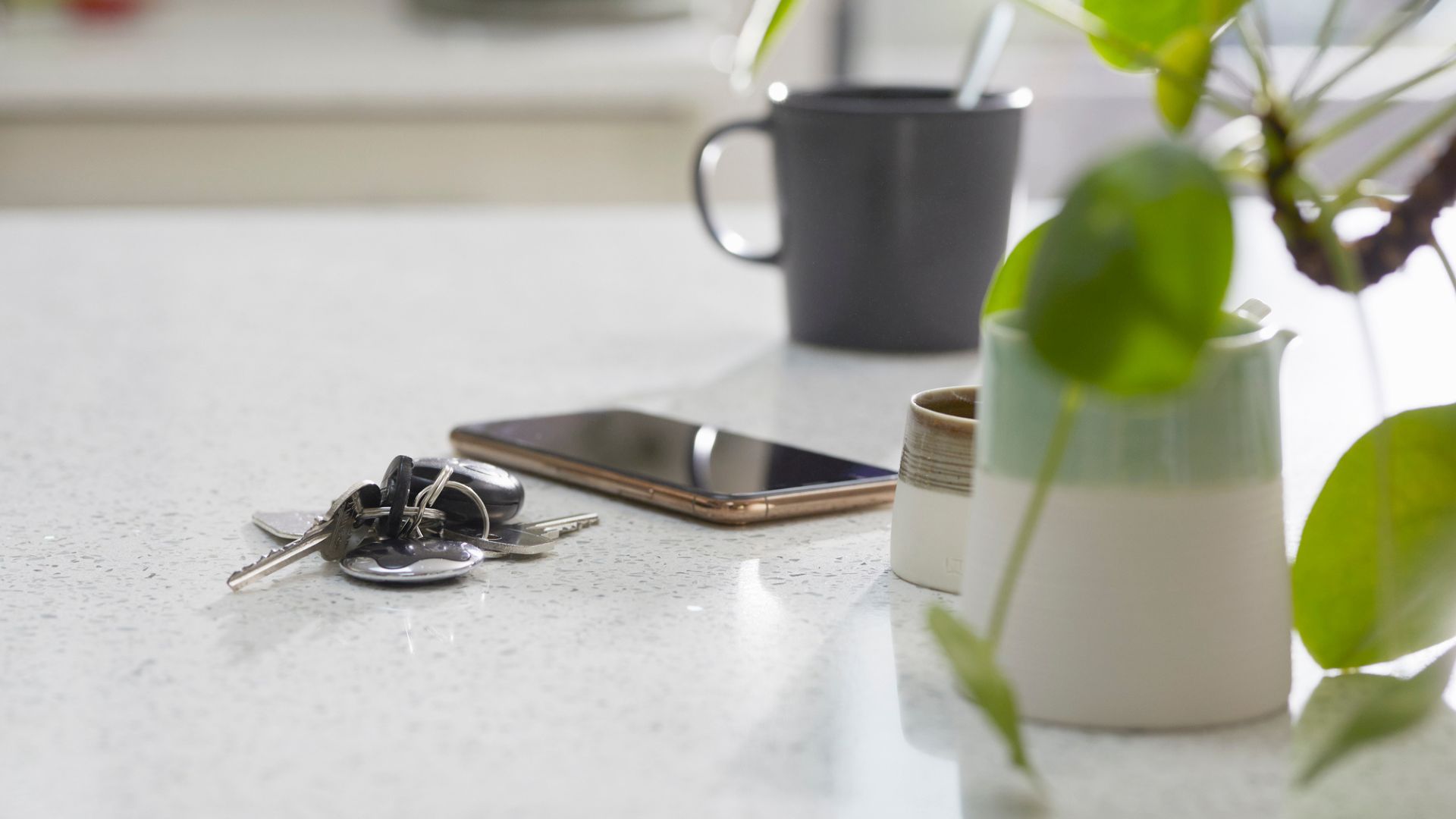
How to stop phubbing in your relationship
Communication is always key in any relationship and whether you are the ‘phubber’ or ‘phubbee’, an open discourse about its impact on your happiness as a couple is essential. Screen time limits may not have featured in a list of potential issues in your relationship but if phone use is having a negative impact then it’s time to talk about how it makes you feel.
1. Use apps that minimise screen time
"Setting boundaries around phone usage during quality time together can help create a more present and connected environment," says Dr Lee. Both Android and Apple devices have built-in apps which can help you monitor your screen time and limit it when you need to. You might be shocked when you see the graphs showing your daily use, which are often broken down into games, texting, social media, and so on. It can be a harsh wake-up call, especially when you think about what else you could be doing with your time. McKenzie suggests "turning off non-essential notifications and decluttering your home screens" to reduce intrusion when you’re doing other activities.
Many of the best health apps, such as Space, allow you to set goals for how long or little you want to spend on your phone and send you notifications to let you know how you’re doing. Forest is an app that lets you plant a tree when you want to stay focused or just be away from your phone and although it doesn't actively prevent you from using your device, when you use social media or another platform, your tree will die. If you're looking for one of the best productivity apps to focus on your relationship, it's a good one.
On iPhone, there is a Digital Wellbeing setting built-in, which allows you to set a limit on the time you spend on an app. Once you’ve reached that limit, it will lock you out. This can be really effective in cutting your phone reliance.
2. Explore other hobbies
If your relationship is suffering due to a lack of face-to-face time then why not find an activity that you can do together? Dr Lee says quality time is one of the five love languages, and no matter how busy life gets, it’s important to make time to be with your partner. It doesn’t have to be anything expensive or tricky to organise. A simple walk and a chat can do wonders for reconnecting with a partner. Playing board games in the evening or cooking together is better than sitting on your phones on the sofa, and it can even help to spice up your relationship.
During the summer, I was inspired by the psychotherapist Anna Mathur to keep a crossword book to hand, instead of my phone. When I felt the urge to check my apps or idly put things I was never going to buy into a shopping basket, I would do a puzzle instead. This worked in three great ways: it cut my screen time by around 25% in a week, challenged me mentally, and involved my family, who all wanted to help me when I got stuck. And I didn’t miss my phone at all!

3. Have dedicated phone-free time
I’m guilty of reaching for my phone as soon as I wake up or in bed at night when I should be winding down and I know this is a sign that I’m overly reliant on it. It’s usually once we’ve turned out the light and my phone is on my bedside table that I think of questions I want to ask my husband - which is hardly the right time!
We’re both very conscious of how unhealthy it is to be scrolling through social media before we go to sleep. Not only does it affect our communication, but also our sex life and quality of sleep. I’ve found that I sleep so much better after an evening where I’ve put my phone on airplane mode and read a book instead.
McKenzie suggests committing to digital detox days. This could be on holiday or a day out with your partner where you connect again and appreciate why you love each other.
4. Prioritise real-life connections
We all know how toxic social media can be and while you might have some meaningful connections with users on some platforms, these apps can have a detrimental impact on your mental health. McKenzie says phone addiction or overuse “hampers genuine communication, fosters detachment and can overshadow real-life experiences, diminishing the quality and depth of interpersonal connections”.
Spending time in the real world, with people who know and love you is hugely important as we all know. Both the person doing the phubbing and the phubbed individual need these connections to stay happy and fulfilled - not just in the relationship but in life generally.
Recently my husband and I have made a real effort to put our phones down and focus on the present moment. Instead of sitting at opposite ends of the sofa half-watching TV and half-scrolling, we are trying to cuddle up closer to enjoy our favourite shows together. We’re also sitting down at the table to eat without our phones more often, so we can catch up on the day’s events and listen to each other. We make sure we go on date nights at least once a month where we sit down and properly talk about anything and everything, from careers to family and plans for the future.
We’re also trying to be better at communicating our feelings to each other and he will tell me if I’m using my phone too much - and I usually (ok, sometimes, begrudgingly) agree.
5. Keep your phone on silent
This might be an obvious suggestion but if you can’t hear activity on your phone, such as pings for messages or notifications, then you might be able to resist looking at it. Incessant sounds can be really irritating and disruptive. If your phone is on silent it can’t interfere with other activities you’re doing.
How to talk to your partner about phubbing
- Be honest about how your partner’s phubbing makes you feel: It might be that they don’t even realise they’re doing it and keeping things to yourself will only cause resentment to build.
- Use examples of when it’s made you feel like you’re not a priority or being heard by them: Kagan suggests using “I” statements such as "I feel neglected when we're together and the phones come out" and "I miss our deep conversations".
- Try not to be too domineering or accusatory: It’s likely that your partner knows they’re over-reliant on their phone so making them feel worse about it may just lead to conflict.
- Choose the right time: Don’t have a conversation when anyone is stressed or angry. Talk when there are no other distractions and you both have time to have a meaningful conversation.
- Consider talking to a therapist or addiction expert: If your partner seems to have a real problem cutting down their phone use then it might be time to get some external help. A therapist may offer services such as hypnotherapy and tools to help reduce phone dependence.

Kat Storr has been a digital journalist for over 15 years after starting her career at Sky News, where she covered everything from world events to royal babies and celebrity deaths. After going freelance eight years ago, she now focuses on women's health and fitness content, writing across a range of UK publications.
From perimenopause to the latest fitness trends, Kat loves researching and writing about it all. She's happy to give any fitness challenge a go and speaks to experts about wellbeing issues affecting people every day.
-
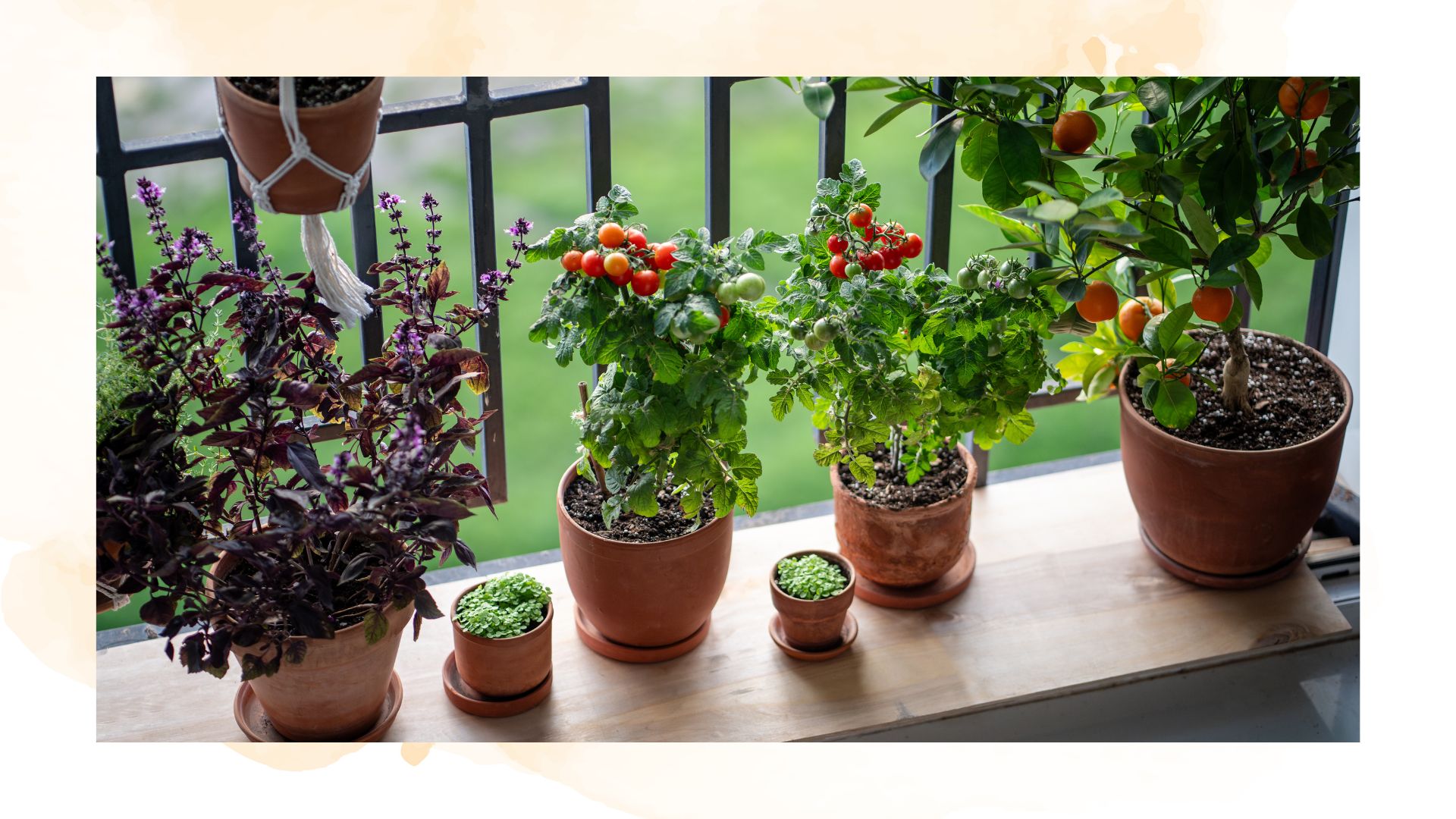 Limited garden space to grow leafy greens and vegetables? Expert reveals three essential edible plants you can grow in pots
Limited garden space to grow leafy greens and vegetables? Expert reveals three essential edible plants you can grow in potsGrowing fresh produce at home doesn't need to take up lots of precious garden space, as these plants prove
By Emily Smith
-
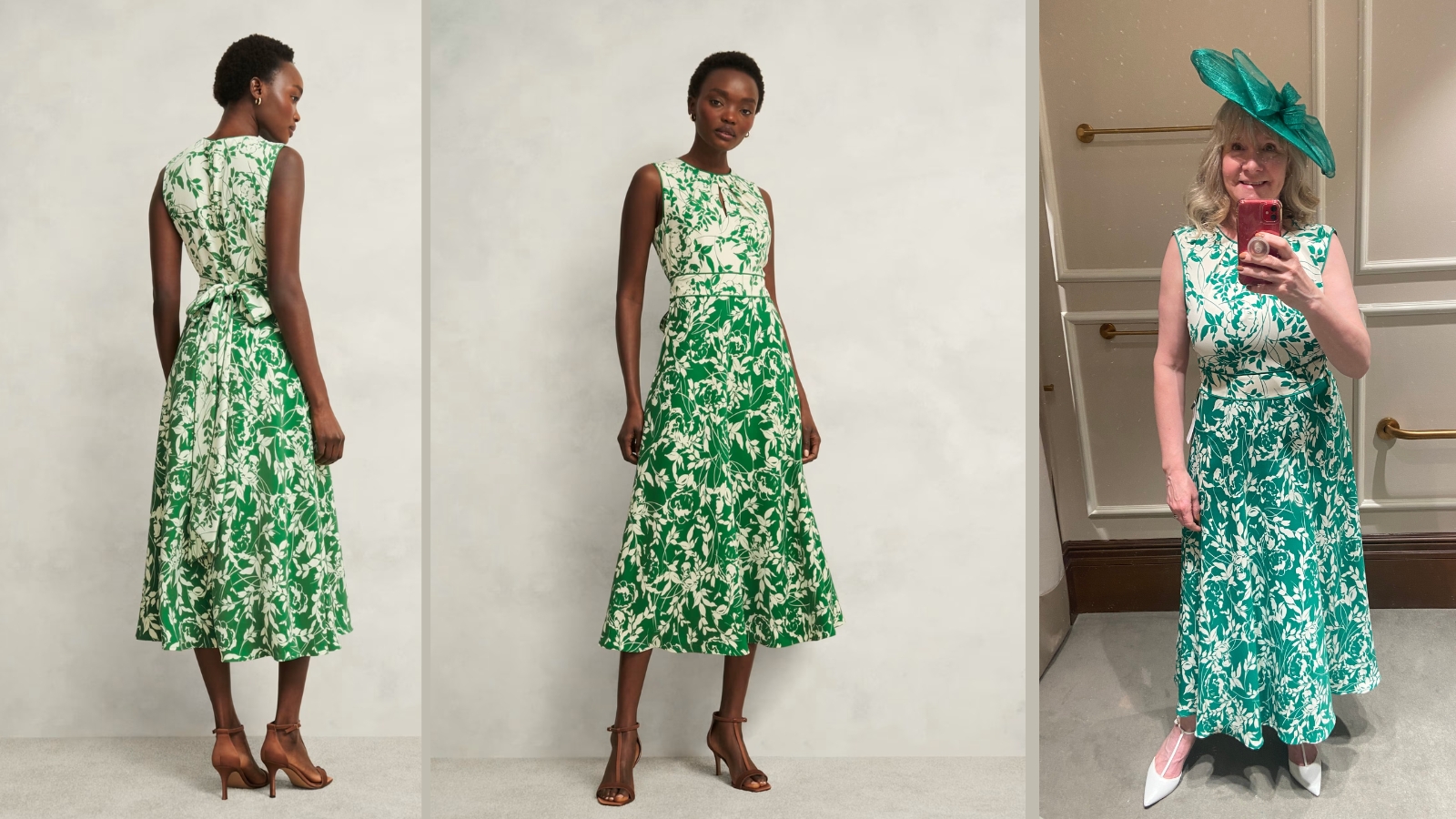 My friend wants chic mother of the bride ideas - I'm suggesting this flattering and sophisticated dress
My friend wants chic mother of the bride ideas - I'm suggesting this flattering and sophisticated dressThe Maddie dress from Hobbs is perfect for a special occasion and has co-ordinating accessories to complete your look
By Julie Player
-
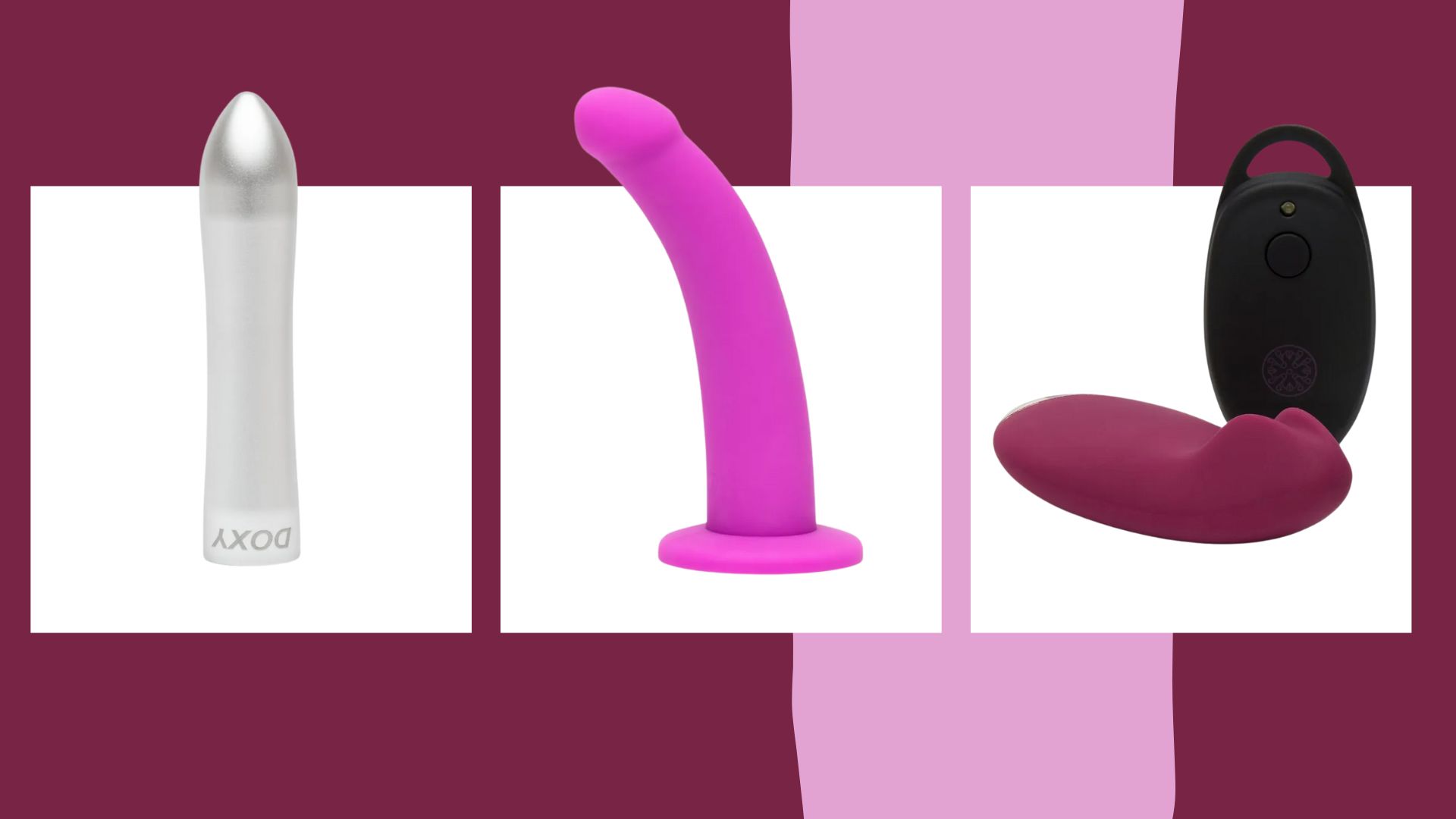 14 best sex toys to help you reach a mind-blowing orgasm in 2025
14 best sex toys to help you reach a mind-blowing orgasm in 2025There's a pick of the best sex toys out there for everyone - here's our selection of the tried, tested, and reviewed favourites for every experience level and budget
By Grace Walsh
-
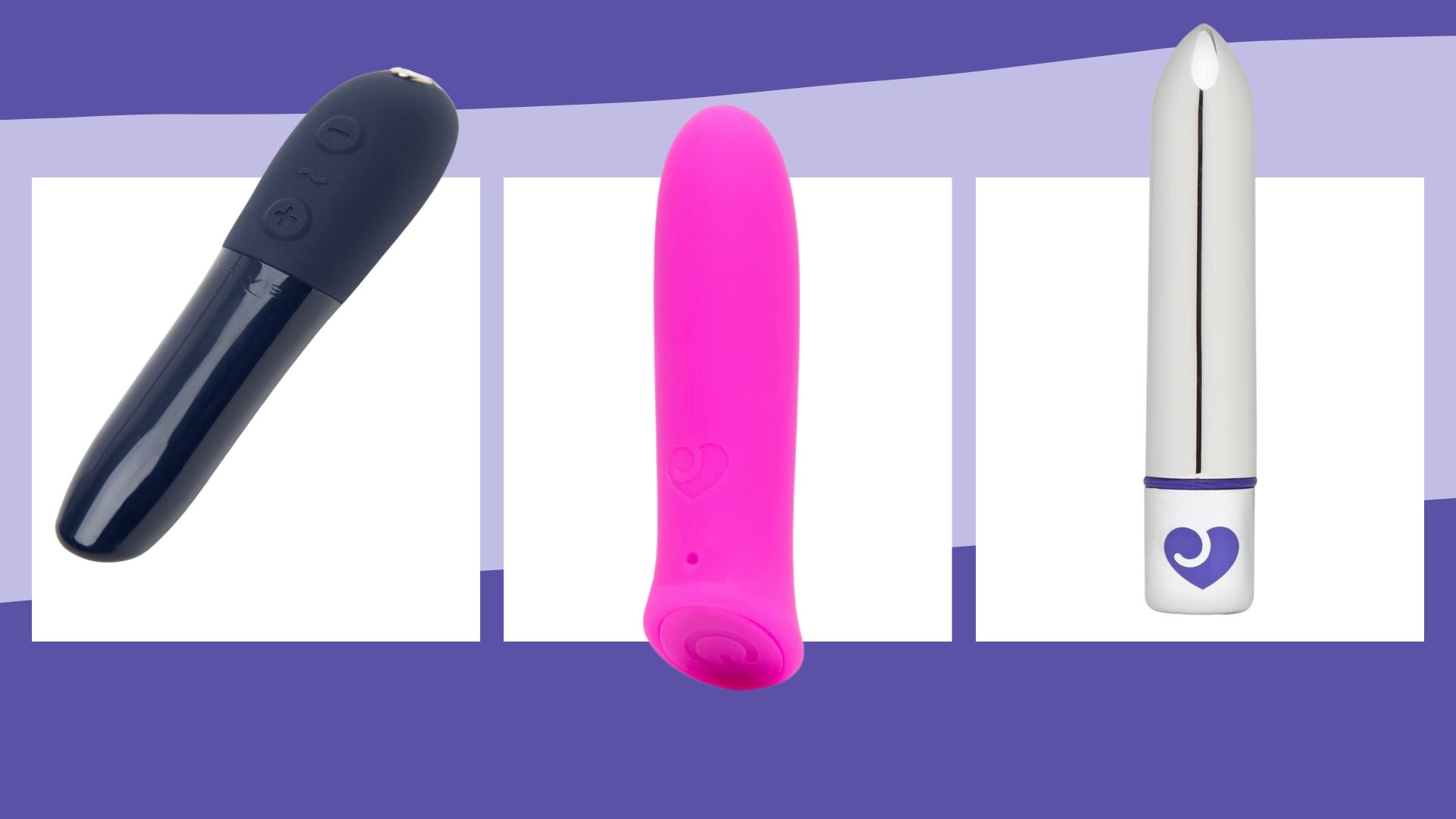 The best bullet vibrators for an intense buzz in 2025, tried and tested by us
The best bullet vibrators for an intense buzz in 2025, tried and tested by usThe best bullet vibrators offer intense stimulation, whatever your pleasure preference. Here, the w&h team round up their tried and tested favourites
By Grace Walsh
-
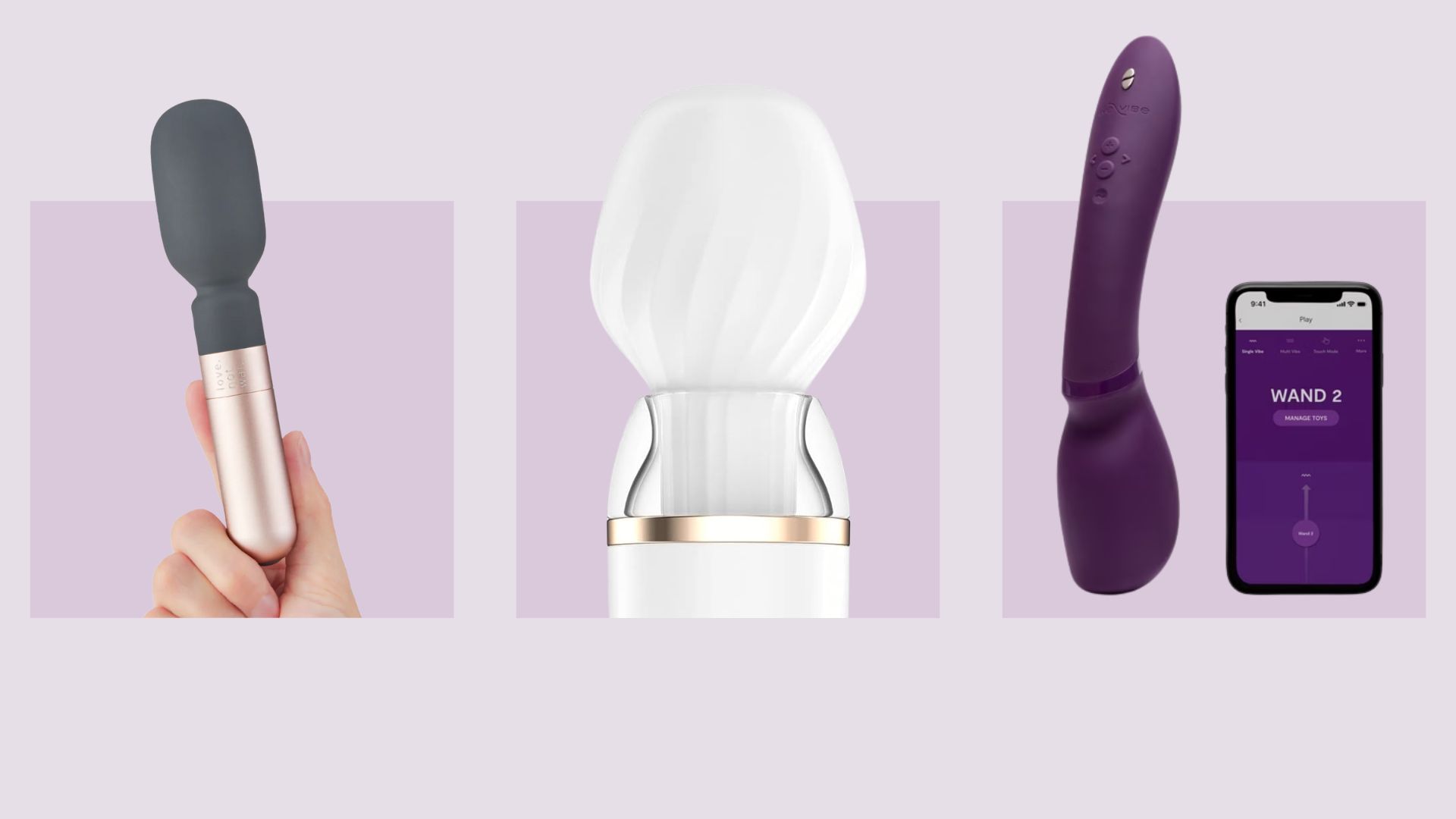 Best wand vibrators: 11 tried and tested toys for couples and solo fun in 2025
Best wand vibrators: 11 tried and tested toys for couples and solo fun in 2025Our tried and tested round up of the best wand vibrators has something for everyone
By Grace Walsh